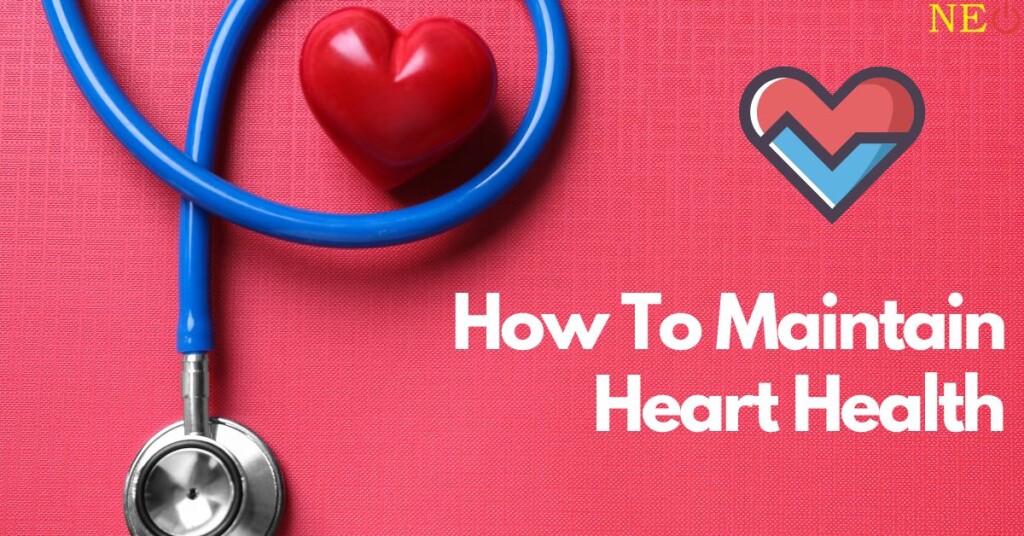Heart disease is the major cause of death. Certain risk factors, such as family history, sex at birth, and age, cannot be changed. However, you can take a variety of different activities to reduce your risk of heart disease.
Start with these eight tips to improve your heart health:
1. Do not smoke or use tobacco.
One of the most beneficial things you can do for your heart is to quit smoking or using smokeless tobacco. Even if you don't smoke, avoid secondhand smoke.
Chemicals in tobacco can harm the heart and blood vessels. Cigarette smoke reduces oxygen in the blood, raising blood pressure and heart rate. This is because the heart must work harder to provide enough oxygen to the body and brain.
There is good news, however. The risk of heart disease begins to decrease as soon as one day after quitting. After a year without cigarettes, the risk of heart disease is around half that of a smoker. Regardless of how long or how much you smoked, you'll begin reaping benefits as soon as you quit.
2. Get moving: Aim for at least 30 to 60 minutes of activity each day.
Regular, everyday physical activity can help reduce the risk of heart disease. Physical activity helps you manage your weight. It also reduces the likelihood of developing other illnesses that might put strain on the heart. These include excessive blood pressure, elevated cholesterol, and type 2 diabetes.
If you haven't been active in a while, you may need to gradually build up to these goals. However, in general, you should aspire at least:
- 150 minutes of moderate aerobic exercise each week, such as walking briskly.
- 75 minutes per week of vigorous aerobic exercise, such as running.
- Two or more strength-training sessions per week.
Even brief periods of physical activity are beneficial to the heart. So, if you can't meet those requirements, don't give up. Even five minutes of physical activity can be beneficial. Gardening, housekeeping, using the stairs, and walking the dog all contribute to your total. You do not need to exercise vigorously to reap the benefits. However, increasing the intensity, length, and frequency of your workouts can provide even greater benefits.
3. Follow a heart-healthy diet.
A good diet can help to protect the heart, improve blood pressure and cholesterol, and reduce the risk of type 2 diabetes. A heart-healthy diet plan involves:
- Fruits and vegetables.
- Beans or other legumes.
- Lean meat and seafood.
- Low-fat or fat-free dairy products.
- Whole grains.
- Healthy fats include olive oil and avocado.
The Dietary Approaches to Stop Hypertension (DASH) and Mediterranean diets are two examples of heart-healthy eating programs.
Consume fewer of the following.
- Salty or high-sodium foods.
- Sugary or sweetened liquids.
- Carbohydrates are highly refined.
- Alcohol.
- Processed meats are an example of highly processed food.
- Red meat contains saturated fat, as do full-fat dairy products, palm oil, and coconut oil.
- Trans fat is present in various fried fast foods, chips, and baked products.
4. Stay in a healthy weight.
Being overweight, particularly in the middle of the body, increases the risk of heart disease. Excess weight can contribute to circumstances that increase the risk of developing heart disease. These problems include hypertension, excessive cholesterol, and type 2 diabetes.
The body mass index (BMI) examines a person's height and weight to determine whether they are overweight or obese. A BMI of 25 or higher indicates overweight. In general, it is associated with elevated cholesterol, blood pressure, and an increased risk of heart disease and stroke.
Waist circumference can also help you determine how much belly fat you have. The risk of heart disease increases if the waist measurement is larger than
- For men, the measurement is 40 inches (101.6 centimeters).
- 35 inches (88.9 cm) for women.
Even a minor weight decrease can benefit you. Even losing 3% to 5% of one's body weight will help decrease triglycerides, which are blood fats. It can reduce blood sugar, commonly known as glucose. It also reduces the likelihood of developing type 2 diabetes. Losing extra weight helps to lower blood pressure and cholesterol levels.
5. Get good sleep.
Sleep deprivation increases the risk of obesity, high blood pressure, heart attack, diabetes, and depression.
Most adults require a minimum of seven hours of sleep per night. Children frequently require more. So make sure you get enough rest. Create a sleep schedule and stick to it. To do this, go to bed and get up at the same times every day. Keep your bedroom dark and quiet so you can sleep easier.
If you believe you are getting enough sleep but still feel weary throughout the day, speak with a member of your health care team. Inquire whether you need to be evaluated for obstructive sleep apnea. It's a disorder that increases your risk of heart disease. Obstructive sleep apnea symptoms include loud snoring, brief pauses in breathing during sleep, and waking up gasping for air. Obstructive sleep apnea treatment may include weight loss if you are overweight. It may also include utilizing a gadget to keep your airway open while you sleep. This is known as a continuous positive airway pressure (CPAP) device.
6. Manage stress.
Ongoing stress can contribute to high blood pressure and other cardiovascular risk factors. Some people also cope with stress in unhealthy ways. For example, they could overeat, drink, or smoke. You can improve your health by learning new stress-management techniques. Physical activity, relaxation techniques, mindfulness, yoga, and meditation are all healthy coping strategies.
If stress gets overpowering, schedule a health checkup. Chronic stress may be connected to mental health issues like anxiety and depression. These disorders are also associated with heart disease risk factors, such as elevated blood pressure and decreased blood flow to the heart. If you suspect you have depression or anxiety, you should get help.
7. Schedule frequent health screening checks.
High blood pressure and cholesterol can harm the heart and blood vessels. However, if you do not get checked for these disorders, you will most likely be unaware of their presence. Regular screening tests can reveal your numbers and determine whether you need to take action.
- Blood pressure. Regular blood pressure testing usually begin throughout childhood. Starting at the age of 18, blood pressure should be checked at least once every two years. This screens for excessive blood pressure, which is a risk factor for heart disease and stroke.
If you are aged 18 to 39 and have risk factors for high blood pressure, you will most likely be examined once a year. People over the age of 40 are also given a blood pressure test once a year.
- cholesterol levels. The National Heart, Lung, and Blood Institute (NHLBI) recommends that cholesterol testing begin between the ages of nine and eleven. Other risk factors, such as a family history of early-onset heart disease, may necessitate earlier testing. Following the initial cholesterol test, screenings should be repeated every five years. The timing varies with age. The NHLBI advises screening women aged 55 to 65 and males aged 45 to 65 every one to two years. People over 65 should have their cholesterol checked once a year.
- Type 2 diabetes screening. Diabetes causes persistently elevated blood sugar levels. It elevates the risk of developing heart disease. Being overweight and having a family history of diabetes are both risk factors for the condition. If you have any of the risk factors, your healthcare provider may urge an early screening. If not, screening is recommended beginning at the age of 45. Then you have your blood sugar levels checked again every three years.
If you have high cholesterol, high blood pressure, or diabetes, consult your doctor. Your doctor may give medication and suggest lifestyle adjustments. Make sure you take your medications exactly as prescribed and maintain a healthy lifestyle.
8. Take measures to prevent infections.
Certain infections may cause heart issues. For example, gum disease may increase the risk of heart and blood vessel disease. Brush and floss everyday. Get frequent dental checkups, too.
Infection-related disorders can exacerbate pre-existing heart conditions. Vaccines provide protection against infectious diseases. So remain up to date with the following shots:
- Annual flu vaccination.
- The COVID-19 vaccine reduces the risk of becoming seriously ill.
- The pneumococcal vaccine minimizes the risk of some bacterial infections.
- Tdap vaccine protects against tetanus, diphtheria, and pertussis.









